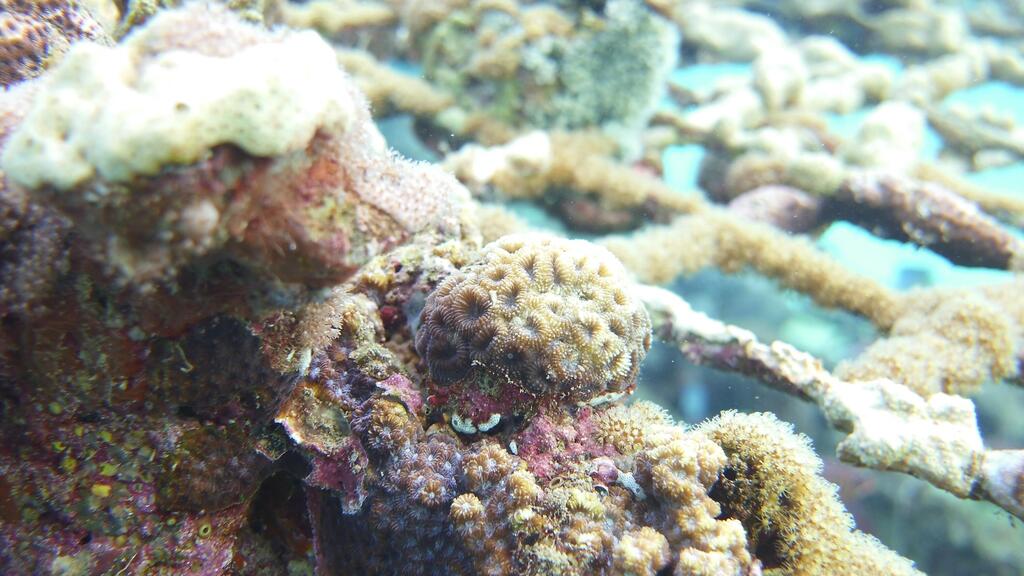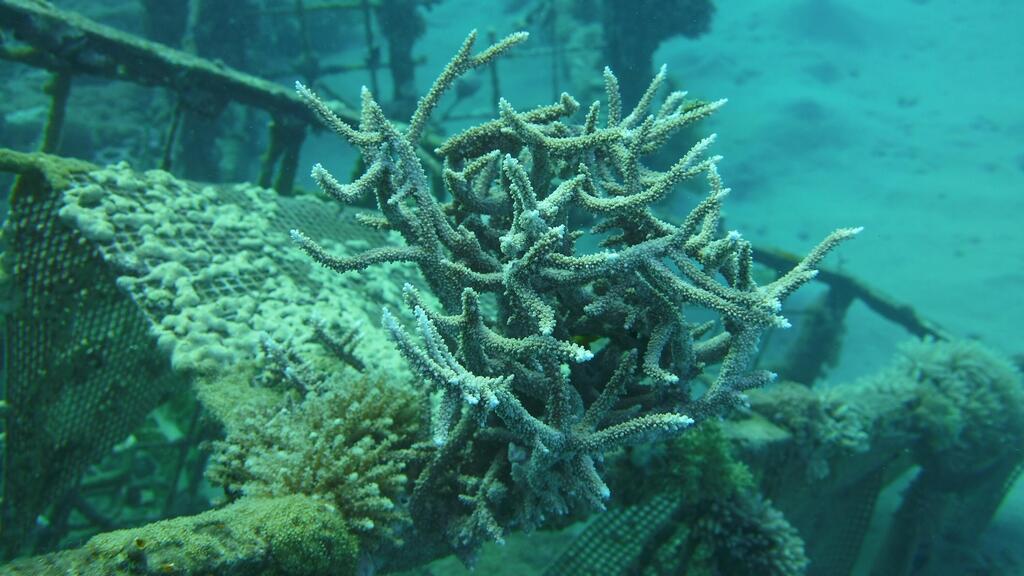Getting your Trinity Audio player ready...
Traces of 10 commonly used medications were found in corals sampled from both shallow and deep waters in the Gulf of Eilat, a new study conducted by researchers at Tel Aviv University found.
Sulfamethoxazole, an antibiotic used to treat urinary and respiratory infections, was detected in no less than 93% of the sampled corals. The study, led by Prof. Noa Shenkar and doctoral student Gal Navon from the School of Zoology and the Steinhardt Museum of Natural History at Tel Aviv University, was conducted in collaboration with the hydrochemistry lab headed by Prof. Dror Avisar from the Porter School of Environment and Earth Sciences at the same university. The results were published in the journal Environmental Pollution.
"For the first time in the world, we examined drug residues in corals on such a large scale," said Prof. Shenkar. "We sampled 96 corals from two types of stony corals in the Gulf of Eilat—Acropora and Favites—in shallow waters at depths of 5 to 12 meters and in deep waters at 30 to 40 meters, beyond the limits of recreational diving. To our surprise, we found significant amounts of drug residues even in the deeper corals, which are typically less exposed to pollutants affecting shallower ones."
The researchers received a list of commonly prescribed medications in Israel from Clalit Health Services. Of the 18 drugs chosen for testing, 10 were found in the corals, with not a single coral free of medication traces—whether from shallow or deep waters. These drugs include antibiotics, blood pressure medications, platelet inhibitors, calcium channel blockers, laxatives, proton pump inhibitors, statins, and antidepressants.
"How do drug residues end up in corals?" explained Prof. Shenkar. "Corals don't visit the doctor or get prescribed antibiotics. These are drugs taken by humans, designed to target specific biological receptors or pathways, which also impact other species. Previous studies, including our own, have shown that estrogen from birth control pills can cause feminization in male fish, affecting reproduction, that Prozac increases aggression and risk-taking in crabs, and that antidepressants impair memory and learning in squid. There's no reason to believe corals are immune to such effects. If our medications disrupt coral reproductive cycles, it could be a problem that we won’t notice for a long time—by then, it might be too late."
"Stony corals, the focus of our study, are essential reef builders and are among the most common species in the Gulf of Eilat," added Gal Navon. "Coral reefs are vital for marine biodiversity. They provide food, shelter, and breeding grounds for countless species and support human livelihoods through fishing and tourism. This fragile ecosystem is already under pressure from climate change, pollution, and overfishing. The discovery of medications in coral tissues adds another layer of concern, showing that human activity is polluting even remote marine environments."
Prof. Shenkar emphasized the importance of proper wastewater treatment to address this issue: "These medications save lives, and we certainly don't suggest people stop using them. But we must consider better wastewater purification methods to filter out drugs. Additionally, everyone should be mindful of disposing of unused medications in ways that don’t harm the environment. Ultimately, these drugs are coming back to us. I've met people who avoid taking medications, but when they eat fish, they may unknowingly consume a 'cocktail' of drug residues absorbed by the fish from the environment."



